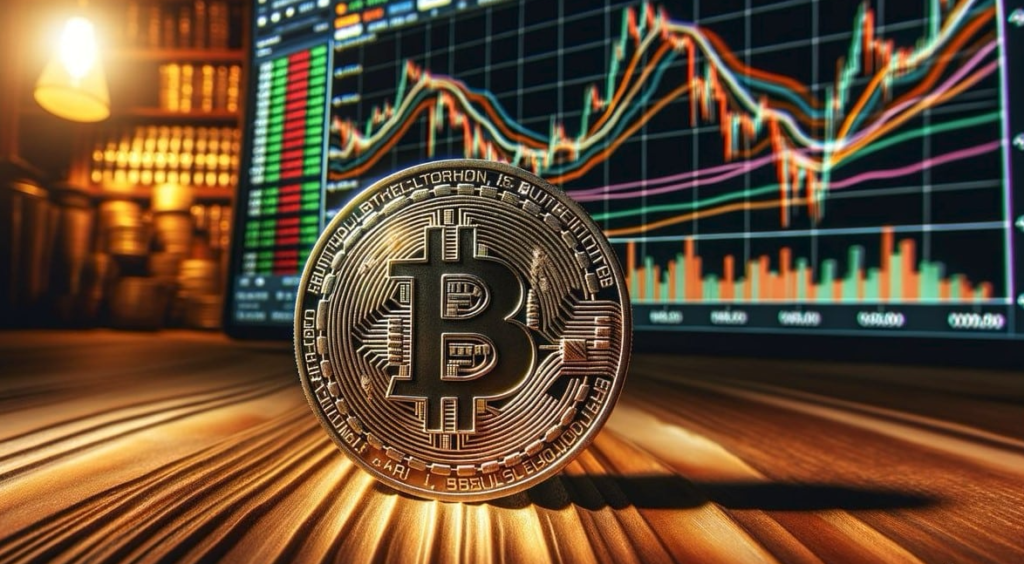The price of Bitcoin isn’t just a number that shows up on trading displays; it’s a real-time picture of how people feel about the economy.Investor behaviour and technological advancements are evolving. Bitcoin (BTC), the most popular cryptocurrency, continues to interest traders, institutions, and analysts alike. Such interest has led to arguments about its value, volatility, and position in the future of global finance.
Bitcoin’s Journey Through Time
Someone under the name Satoshi Nakamoto created Bitcoin when it first appeared in 2009. At the time, its price was almost zero. People mined and traded Bitcoin for fun for more than a year. Bitcoin didn’t have any real value until 2010, when it was worth about $0.003. It went above $1 just a year later, starting a sequence of big boom-and-bust cycles that would become typical of how the market behaved. Bitcoin went above $1,000 in 2013 because early adopters were excited about it and more people were interested in decentralised finance.
In late 2017, as speculation erupted, the price of Bitcoin surged to approximately $20,000. This marked the pivotal moment. In 2018, there was a lengthy slump that brought prices down to less than $4,000. This period was called the “crypto winter”. But things changed again in 2020 and 2021, when Bitcoin shot up beyond $60,000. The rise in price was due to institutional interest from firms like Tesla and MicroStrategy, the development of crypto futures markets, and rising demand from regular people. During the terrible market of 2022, prices fell below $20,000. However, the legalisation of spot Bitcoin ETFs in 2024 gave investors new hope, and by early 2025, BTC had passed the $100,000 threshold.
Key Drivers of Bitcoin
Bitcoin is one of the most volatile financial assets due to several variables. Bitcoin’s scarcity is one explanation. Bitcoin is rare, similar to gold and other precious metals, because there will only ever be 21 million coins. The Bitcoin halving event halves mining earnings every four years. Because there is less new supply, reward cuts have produced huge price hikes in the past. Bitcoin’s built-in deflationary process has been highlighted again after the April 2024 halving. Its adoption by institutions is another aspect. The January 2024 debut of U.S.-regulated spot Bitcoin ETFs made crypto investing more real. Asset managers like BlackRock, Fidelity, and Greyscale have invested billions in these funds, increasing demand and making it easier for regular and institutional investors to invest.

Money flooding the market has set a price floor and increased liquidity. Bitcoin’s worth also depends on the economy. As concerns about inflation, the national debt, and fiat currency devaluation mount, more individuals perceive Bitcoin as a shelter from unstable money. Bitcoin is growing in hyperinflationary or capital-controlled countries like Argentina, Venezuela, and Turkey. People want alternatives to shaky local currencies, hence its popularity. Global regulations matter too. People used to sell equities because they feared prohibitions or curbs in key markets like the US or China. The regulatory landscape appears to be changing. More people are investing after the SEC approved Bitcoin ETFs and clarified cryptocurrency tax rules. El Salvador and the Central African Republic have legitimised Bitcoin in their banking systems.
Bitcoin Technical Analysis Insights
Bitcoin is still following important support and resistance levels on the technical side. Bitcoin is trading at about $106,000 as of mid-2025. Analysts say that $112,000 to $114,000 is a resistance zone that, if broken, may send prices up to $140,000 and more. We are using tools like the Relative Strength Index (RSI), Moving Averages, and on-chain data (such as active addresses, wallet balances, and exchange inflows) to make predictions about what will happen in the future.
Platforms like Glassnode and CryptoQuant give us a lot of information about how healthy the market is by watching what investors do and analysing the blockchain. Additionally, Google Trends, social media, and crypto forums commonly evaluate retail sentiment, which remains a strong short-term factor. Bullish stories on sites like Reddit or X (previously Twitter) can make prices go up faster, while FUD (fear, uncertainty, and doubt) headlines can make people sell quickly.Bitcoin price.
Bitcoin Price Predictions 2025
It’s always a guess to try to predict. Many experts and institutional researchers have attempted to predict the future Bitcoin price. Standard Chartered says that Bitcoin will hit $150,000 by the end of 2025 . The end of 2025 because more people are buying. It is, but there is less of it available. Bernstein Research has similar predictions, but some more optimistic people think prices might reach $200,000 or more if macro tailwinds and adoption momentum keep going.

Bitcoin is becoming more and more like digital gold, a safe place to save money in a world. That is mostly digital. If Bitcoin captures even a small portion of gold’s $13 trillion market cap, some estimates suggest. Its long-term worth might surpass $500,000 for each coin. But investors should also be wary of dangers that could make things worse, like political tensions, unexpected rules, or tech problems.
Final thoughts
Bitcoin’s rising value has effects that go beyond just speculation about its worth. It questions established financial systems, making. It’s easier for people in developing countries to save money in a decentralised way and stimulates new ideas in payment systems using technologies like . The Lightning Network. Bitcoin is more than simply an asset; it’s a set of rules that are changing finance and digital freedom.
It influences discussions regarding global policy, environmental issues related to energy use, and the strategies employed by central banks. Therefore, the price of Bitcoin indicates a much larger shift towards decentralised financial infrastructure. That is decentralised, has no borders, and can’t be censored. Bitcoin price

